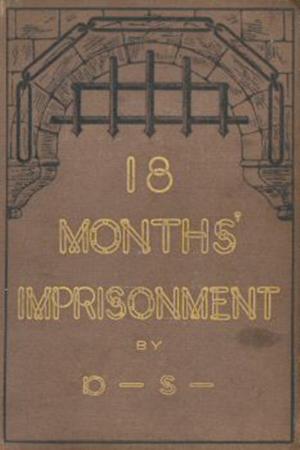| Author: | Cristian Butnariu | ISBN: | 1230001005110 |
| Publisher: | Cristian Butnariu | Publication: | March 23, 2016 |
| Imprint: | Language: | English |
| Author: | Cristian Butnariu |
| ISBN: | 1230001005110 |
| Publisher: | Cristian Butnariu |
| Publication: | March 23, 2016 |
| Imprint: | |
| Language: | English |
Had we not feared to appear overambitious, we should have given this book a subtitle: Introduction to a Philosophy of History. For such, after all, is the purport of the present essay; but with the distinction that, instead of proceeding to a speculative analysis of the historical phenomenon, it examines the fundamental concepts of archaic societies which, although they are conscious of a certain form of "history," make every effort to disregard it. In studying these traditional societies, one characteristic has especially struck us: it is their revolt against concrete, historical time, their nostalgia for a periodical return to the mythical time of the beginning of things, to the "Great Time." The meaning and function of what we have called "archetypes and repetition" disclosed themselves to us only after we had perceived these societies' will to refuse concrete time, their hostility toward every attempt at autonomous "history," that is, at history not regulated by archetypes. These dismissals, this opposition, are not merely the effect of the conservative tendencies of primitive societies, as this book proves.
In our opinion, it is justifiable to read in this depreciation of history (that is, of events without trans-historical models), and in this rejection of profane, continuous time, a certain metaphysical "valorisation" of human existence. But this valorisation is emphatically not that which certain post-Hegelian philosophical currents notably Marxism, historicism, and existentialism have sought to give to it since the discovery of "historical man," of the man who is insofar as he makes himself, within history.
The problem of history as history, however, will not be directly approached in this essay. Our chief intent has been to set forth certain governing lines of force in the speculative field of archaic societies. It seemed to us that a simple presentation of this field would not be without interest, especially for the philosopher accustomed to finding his problems and the means of solving them in the texts of classic philosophy or in the situations of the spiritual history of the West. With us, it is an old conviction that Western philosophy is dangerously close to "provincial zing" itself (if the expression be permitted): first by jealously isolating itself in its own tradition and ignoring, for example, the problems and solutions of Oriental thought; second by its obstinate refusal to recognize any "situations" except those of the man of the historical civilizations, in defiance of the experience of "primitive" man, of man as a member of the traditional societies. We hold that philosophical anthropology would have something to learn from the valorisation that pre-Socratic man (in other words, traditional man) accorded to his situation in the universe. Better yet: that the cardinal problems of metaphysics could be renewed through knowledge of archaic ontology. In several previous works, especially in our Traite d'histoire des religions, we attempted to present the principles of this archaic ontology, without claiming, of course, to have succeeded in giving a coherent, still less an exhaustive, exposition of it.
This study, likewise, does not attempt to be exhaustive. Addressing ourselves both to the philosopher and to the ethnologist or orientalist, but above all to the cultivated man, to the no specialist, we have often compressed into brief statements what, if duly investigated and differentiated, would demand a substantial book. Any thoroughgoing discussion would have entailed a marshalling of sources and a technical language that would have discouraged many readers. But instead of furnishing specialists with a series of marginal comments upon their particular problems, our concern has been to draw the attention of the philosopher, and of the cultivated man in general, to certain spiritual positions that, although they have been transcended in various regions of the globe, are instructive for our knowledge of man and for man's history itself.
Had we not feared to appear overambitious, we should have given this book a subtitle: Introduction to a Philosophy of History. For such, after all, is the purport of the present essay; but with the distinction that, instead of proceeding to a speculative analysis of the historical phenomenon, it examines the fundamental concepts of archaic societies which, although they are conscious of a certain form of "history," make every effort to disregard it. In studying these traditional societies, one characteristic has especially struck us: it is their revolt against concrete, historical time, their nostalgia for a periodical return to the mythical time of the beginning of things, to the "Great Time." The meaning and function of what we have called "archetypes and repetition" disclosed themselves to us only after we had perceived these societies' will to refuse concrete time, their hostility toward every attempt at autonomous "history," that is, at history not regulated by archetypes. These dismissals, this opposition, are not merely the effect of the conservative tendencies of primitive societies, as this book proves.
In our opinion, it is justifiable to read in this depreciation of history (that is, of events without trans-historical models), and in this rejection of profane, continuous time, a certain metaphysical "valorisation" of human existence. But this valorisation is emphatically not that which certain post-Hegelian philosophical currents notably Marxism, historicism, and existentialism have sought to give to it since the discovery of "historical man," of the man who is insofar as he makes himself, within history.
The problem of history as history, however, will not be directly approached in this essay. Our chief intent has been to set forth certain governing lines of force in the speculative field of archaic societies. It seemed to us that a simple presentation of this field would not be without interest, especially for the philosopher accustomed to finding his problems and the means of solving them in the texts of classic philosophy or in the situations of the spiritual history of the West. With us, it is an old conviction that Western philosophy is dangerously close to "provincial zing" itself (if the expression be permitted): first by jealously isolating itself in its own tradition and ignoring, for example, the problems and solutions of Oriental thought; second by its obstinate refusal to recognize any "situations" except those of the man of the historical civilizations, in defiance of the experience of "primitive" man, of man as a member of the traditional societies. We hold that philosophical anthropology would have something to learn from the valorisation that pre-Socratic man (in other words, traditional man) accorded to his situation in the universe. Better yet: that the cardinal problems of metaphysics could be renewed through knowledge of archaic ontology. In several previous works, especially in our Traite d'histoire des religions, we attempted to present the principles of this archaic ontology, without claiming, of course, to have succeeded in giving a coherent, still less an exhaustive, exposition of it.
This study, likewise, does not attempt to be exhaustive. Addressing ourselves both to the philosopher and to the ethnologist or orientalist, but above all to the cultivated man, to the no specialist, we have often compressed into brief statements what, if duly investigated and differentiated, would demand a substantial book. Any thoroughgoing discussion would have entailed a marshalling of sources and a technical language that would have discouraged many readers. But instead of furnishing specialists with a series of marginal comments upon their particular problems, our concern has been to draw the attention of the philosopher, and of the cultivated man in general, to certain spiritual positions that, although they have been transcended in various regions of the globe, are instructive for our knowledge of man and for man's history itself.















